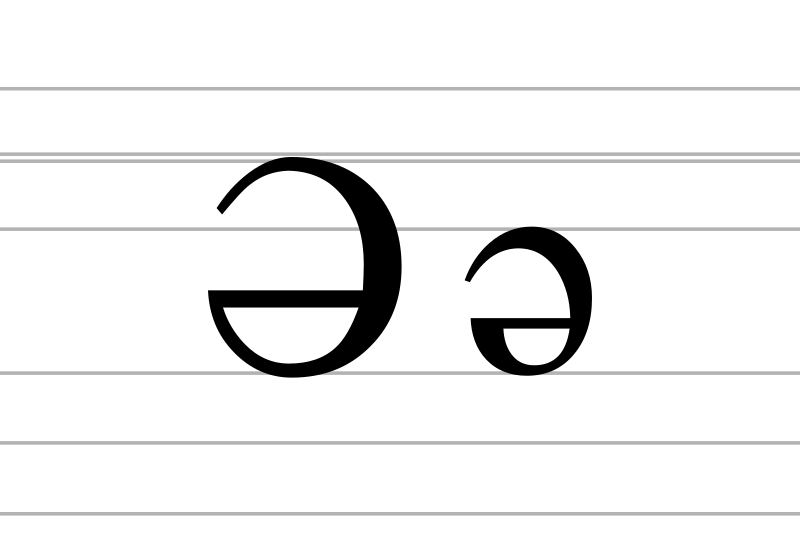3 Tricks to Pass For a Native French Speaker
Are you fluent in French but still not satisfied with the way you speak? If you're an intermediate French speaker looking to improve your speech, this article is for you.

Are you fluent in French but still not satisfied with the way you speak? If you're an intermediate French speaker looking to improve your speech, this article is for you.
The aim of this article is to point out some features that distinguish native French speakers (from France) from learners of French. The idea is that, once you apply these tweaks to your own speech, your performance when speaking French should be closer to that of a native French speaker.
As a disclaimer, this article assumes that you've dealt with grammar and pronunciation mistakes. If you're still making mistakes, I suggest you read the above-mentioned articles. However, even if you're still struggling with some of the intricacies of the French language, you can always start to implement the following tricks.

#1 Schwa Deletion
The most common feature in the speech of a native French speaker is the dropping of "schwa". What in the world is "schwa"?
In English, schwa is a vowel which sounds like the "uh" in "the". In French, however, it corresponds to the "e" in "de, le, etc." - which sounds like this.
So what is schwa deletion? Simply said, it is the dropping of the "schwa" sound in specific contexts. Here are some examples:
Here are normally pronounced sentences of French. Notice the pronounced schwas in bold.
Je n'ai pas de chien. (I don't have dogs)
J'ai le droit de manger. (I have permission to eat)
C'est quoi ce truc ? (What's this?)
Now take the same sentences without the schwas:
Je n'ai pas d
echien. (I don't have dogs)
J'ai ledroit demanger. (I have permission to eat)
C'est quoi cetruc ? (What's this?)
Which would be pronounced as so:
Je n'ai pas d'chien. (I don't have dogs)
J'ai l'droit d'manger. (I have permission to eat)
C'est quoi c'truc ? (What's this?)
This process is typically found in common speech among native speakers. However, I suggest to not overdo it. Keep in mind that schwa deletion typically occurs with a determiner or pronoun like (le, de, te, etc.). You can start there. If you want to go further, there are many other cases. I would suggest to pay attention to schwa deletion whenever you hear French. The key is to notice where it happens, then you can replicate it.

#2 Intonation
In the The Ultimate Guide to French Pronunciation, I wrote an entire section about intonation. Why did I chose to include intonation in this pronunciation guide? Well, you could master the individual sounds of French all you want, that doesn't guarantee you to speak as a native speaker.
In fact intonation is the key to mastering the pronunciation of a foreign language.
You're probably already familiar with the three phrase intonation types - declarative, interrogative and exclamative. In fact, the way you intonate each of these types in your native language is probably similar in French.
The only difference probably lies in where the tone raises and falls at the sentence level.
If you feel like you may need help with intonation, you might find the mentioned article useful. You can also ask a Speechling coach to provide precise feedback on your intonation.

#3 Anaphoras
Another weird word? Although it does sound weird, you've probably already heard the word "anaphora" in the past.
In linguistics, an anaphora can be illustrated with the following examples:
A set regular sentences:
Ce chat est beau ! (This cat is beautiful!)
Jean est déjà parti ? (Has John already left?)
Cette robe a l'air pas mal ! (This dress looks terrific!)
Now with anaphoras:
Il est beau ce chat! (This cat is beautiful!)
Il est déjà parti, Jean? (Has John already left?)
Elle a l'air pas mal cette robe! (This dress looks terrific!)
Notice how both elements denoted in bold refer to the same entity. In other words, the actual subject is pushed back to the end of the sentence while a pronoun comes at the beginning.
This is typical in colloquial French. I find that anaphoras are often not implemented by learners of French; but they're an excellent tool to pass for a native French speaker.
Of course not using anaphoras is not a mistake and should even be avoided when writing French.
Anaphoras are a concept that belongs in linguistics and - unless I'm mistaken - you're not likely to find any blog article explaining how it works from A to Z. Again, I would suggest that you get familiar with this phenomena by noticing whenever listening to French.

Why Repetition Is Not Enough
When you're were learning a foreign language in school, you were probably asked to repeat words or sentences to better learn them (or write them in your hard drive).
While repetition can have its purpose in language learning, I know by experience that noticing is more effective. In other words, being aware of certain phenomena in a foreign language is the first step to replicate them. In that case, merely repeating words and phrases is not enough. Simple repetition can even reinforce mistakes when speaking because the learner is not aware of them.
This is why I always recommend to get feedback when learning a foreign language - and that's where Speechling comes in. Speechling is a unique platform which allows you to get feedback on the way you speak. First, you can compare your own speech to the recording of a native speaker side-by-side. Then, you can start being aware of your own mistakes. Second, you can record yourself and send the recording to a native French coach who will teach you one-on-one to identify all pronunciation, intonation, word choice mistakes! Most importantly, no video call is required. Speechling is free to get started!
